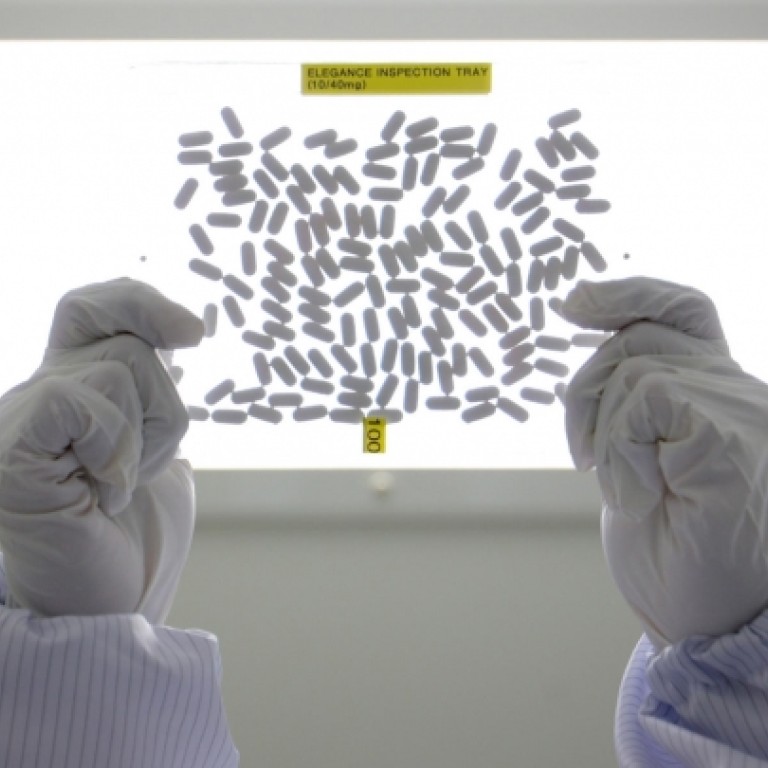
Mutated gene clue to heart remedy
Three leading pharmaceutical companies in race to produce drug to mimic rare hereditary condition that radically lowers bad cholesterol
The discovery of a rare genetic mutation that gives two women astoundingly low cholesterol levels has set off one of the greatest medical chases ever.
Three pharmaceutical companies - Amgen, Pfizer and Sanofi - are in a race to test and win approval for a drug that mimics the effects of the mutation, which drives "bad" cholesterol levels to new lows and prevents heart attacks. All three companies have drugs in clinical trials and report that their results, so far, are exciting.
"This is our top priority," said Dr Andrew Plump, the head of translational medicine at Sanofi. "Nothing else we are doing has the same public health impact."
One of the women with the mutation is a 32-year-old aerobics instructor from Dallas whose level of low-density lipoprotein, or LDL, the cholesterol that promotes heart disease, was 14, a level unheard-of in healthy adults whose normal level is above 100.
The woman carried a rare gene mutation inherited from both parents. Only one other person, a young, healthy Zimbabwean woman whose LDL cholesterol was 15, has ever been found with the same double mutation.
So far, people with stubbornly high cholesterol levels who are taking the test drugs in preliminary studies have seen their LDL levels plunging from levels well over 100 to 50, 40 or even lower.
Dr Barry Gumbiner, who is directing Pfizer's studies, said the company had to decide whether to set a floor for patients' LDL levels. Pfizer interrupts treatment when LDL levels reach 25 or lower. The patients seemed fine, but the company got nervous. "There is not a lot of experience treating people to LDL levels this low," Gumbiner said.
The story of how these drugs came about began a decade ago. French researchers published a short note in the journal reporting on three generations of a family with LDL levels up to 466 - and a strong history of heart disease.
The cause of the family's misfortune turned out to be a mutation in a gene called PCSK9, whose function was unknown. Soon, researchers discovered that the gene slowed the body's ability to rid itself of LDL.
That gave Jonathan Cohen and Dr Helen Hobbs of the University of Texas Southwestern Medical Centre in Dallas an idea. If a mutation in PCSK9 leads to high LDL levels, perhaps there were defects that did the opposite - led to very low levels of LDL and protected against heart disease.
They found what they were looking for in data from a federal study. About 2.5 per cent of blacks in the study had a single mutated PCSK9 gene that no longer functioned. About 3.2 per cent of whites had a less powerful mutation that hampered the gene but did not destroy it.
Since people have two copies of every gene, one inherited from each parent, those with the newly discovered mutations did not have two mutated genes like the aerobics instructor. But the impact was clear. Blacks ended up with LDL levels that were 28 per cent lower than normal, averaging 100 instead of 138. Whites with the less powerful mutation had LDL levels that were about 15 per cent lower.
Scientists searched for couples who both had a mutated gene. Cohen and Hobbs found one such couple and tested their daughter - the aerobics instructor with the double inheritance.
Meanwhile, South African researchers began their own search for those who have two copies of the gene and found a healthy young woman at a maternity clinic in Zimbabwe. Both young women showed that people could be healthy and thrive with very low LDL cholesterol levels.
Pharmaceutical companies have since been transfixed by the idea of making a drug to create the effects of the mutations.
Amgen has three factories in Colorado, Puerto Rico and Rhode Island to make its drug on a vast scale if it is approved.
